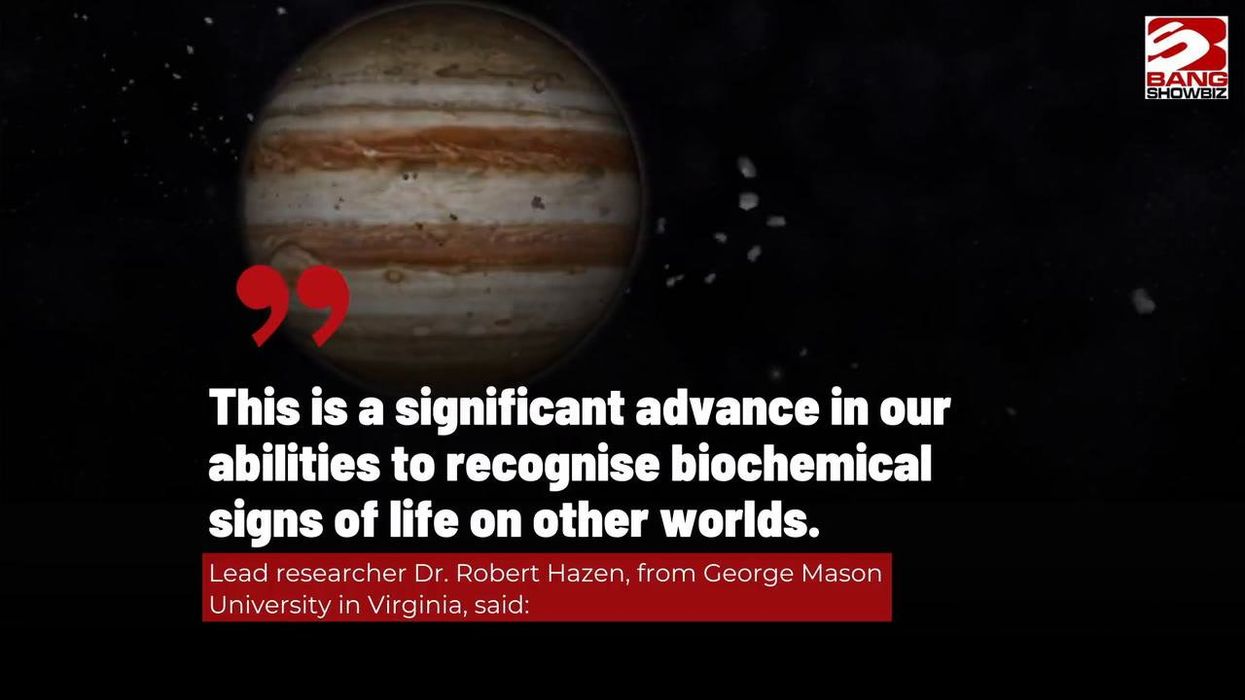Science & Tech
Kate Plummer
Oct 06, 2023
AI system can accurately detect aliens with 90 per cent accuracy
Bang Showbiz - Bang Bizarre / VideoElephant
Scientists are using AI to search planets for alien life.
Researchers writing in the Proceedings of the National Academy of Sciences say artificial intelligence can determine with 90 per cent accuracy whether a sample from another planet is biological or not.
Scientists hope that their test could be used on samples already collected by the Mars Curiosity rover’s Sample Analysis at Mars (SAM) instrument. The findings could also help tell us more about our own planet, revealing the history of mysterious and ancient rocks found on Earth.
“The search for extraterrestrial life remains one of the most tantalizing endeavors in modern science,” said lead author Jim Cleaves of the Earth and Planets Laboratory, Carnegie Institution for Science, Washington, DC.
“The implications of this new research are many, but there are three big takeaways: First, at some deep level, biochemistry differs from abiotic organic chemistry; second, we can look at Mars and ancient Earth samples to tell if they were once alive; and third, it is likely this new method could distinguish alternative biospheres from those of Earth, with significant implications for future astrobiology missions.”
The technique was built by giving an artificial intelligent system data about 134 known samples, with information about whether they are biotic or abiotic. To test it, it was then given new samples – including those from living things, remnants of ancient life and other abiotic samples that did not point to life, such as pure chemicals.
The system also started predicting another kind of sample type, dividing the biotic ones into “living” and “fossils”. That means it could tell the difference between a freshly harvested leaf and something else that died long ago, for instance.
In the future, the technology could become even more advanced and detect other aspects of life.
“This routine analytical method has the potential to revolutionize the search for extraterrestrial life and deepen our understanding of both the origin and chemistry of the earliest life on Earth,” said Robert Hazen, of the Carnegie Institution for Science, one of the leaders of the research. “It opens the way to using smart sensors on robotic spacecraft, landers and rovers to search for signs of life before the samples return to Earth.”
Sign up to our free Indy100 weekly newsletter
Have your say in our news democracy. Click the upvote icon at the top of the page to help raise this article through the indy100 rankings.
Top 100
The Conversation (0)














